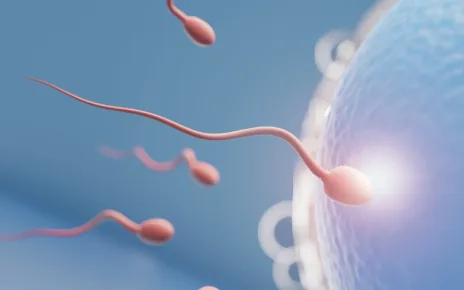Reproductive medicine is a specialized field of medical science that addresses various aspects of human reproduction, including fertility, hormonal disorders, and reproductive health issues in both men and women. With rapid advancements in medical technology, reproductive medicine has expanded its scope to offer cutting-edge solutions for infertility, genetic disorders, and other reproductive challenges. This comprehensive guide delves into common reproductive health disorders, diagnostic approaches, and the latest advancements in treatment options.
Common Disorders in Reproductive Health
Reproductive medicine addresses a wide range of health conditions that can affect fertility and reproductive function.
Infertility
Infertility is defined as the inability to conceive after one year of unprotected intercourse. It affects both men and women.
Causes in Men:
- Low Sperm Count: Insufficient sperm production can hinder conception.
- Poor Sperm Quality: Abnormal sperm morphology or reduced motility can impair fertility.
- Erectile Dysfunction: The inability to achieve or maintain an erection can prevent successful intercourse.
- Varicocele: Enlargement of veins in the scrotum can affect sperm production.
- Hormonal Imbalances: Low testosterone levels can impact spermatogenesis.
- Genetic Disorders: Conditions such as Klinefelter syndrome can cause infertility.
Causes in Women:
- Polycystic Ovary Syndrome (PCOS): Characterized by hormonal imbalances, irregular menstrual cycles, and the presence of multiple ovarian cysts.
- Endometriosis: The growth of endometrial tissue outside the uterus can cause pain and infertility.
- Blocked Fallopian Tubes: Obstructions can prevent the egg from meeting sperm.
- Uterine Abnormalities: Conditions such as fibroids and congenital uterine anomalies can hinder implantation.
- Hormonal Disturbances: Irregular levels of FSH, LH, estrogen, and progesterone can affect ovulation.
Polycystic Ovary Syndrome (PCOS)
PCOS is one of the most common endocrine disorders among women of reproductive age. It is characterized by irregular menstrual cycles, excessive androgen levels, and polycystic ovaries.
Endometriosis
Endometriosis occurs when the tissue lining the uterus grows outside the uterine cavity. It can cause severe pelvic pain, heavy periods, and infertility.
Treatment options for endometriosis include:
- Pain management with NSAIDs
- Hormonal therapies to reduce endometrial growth
- Surgical interventions to remove endometrial lesions
Erectile Dysfunction (ED)
ED is the inability to achieve or maintain an erection sufficient for sexual intercourse. It can result from physical or psychological factors.
Causes of Erectile Dysfunction (ED) include:
- Cardiovascular disease
- Diabetes
- Hormonal imbalances
- Stress and anxiety
- Neurological disorders
Recurrent Pregnancy Loss (RPL)
RPL is defined as two or more consecutive pregnancy losses. It can be caused by genetic abnormalities, uterine issues, or immune system disorders.
Management of Recurrent Pregnancy Loss (RPL) includes:
- Addressing uterine abnormalities
- Hormonal support during pregnancy
- Genetic counseling
- Immunotherapy in certain cases
Understanding the basics of this field and knowing how to treat these disorders is essential if you are looking to become an expert in reproductive medicine. Make sure you choose the right study partner on your journey to becoming a reproductive medicine specialist.
Connect with our team to learn more about different skill enhancement in reproductive medicine courses!




